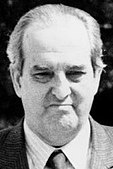| |||||||||||||||||||||||||||||||||||||||||||||||||||||||||||||||||||||||||||||||||||||||||||||||||||||||||||||
All 60 Spanish seats in the European Parliament | |||||||||||||||||||||||||||||||||||||||||||||||||||||||||||||||||||||||||||||||||||||||||||||||||||||||||||||
|---|---|---|---|---|---|---|---|---|---|---|---|---|---|---|---|---|---|---|---|---|---|---|---|---|---|---|---|---|---|---|---|---|---|---|---|---|---|---|---|---|---|---|---|---|---|---|---|---|---|---|---|---|---|---|---|---|---|---|---|---|---|---|---|---|---|---|---|---|---|---|---|---|---|---|---|---|---|---|---|---|---|---|---|---|---|---|---|---|---|---|---|---|---|---|---|---|---|---|---|---|---|---|---|---|---|---|---|---|---|
| Opinion polls | |||||||||||||||||||||||||||||||||||||||||||||||||||||||||||||||||||||||||||||||||||||||||||||||||||||||||||||
| Registered | 29,283,982 | ||||||||||||||||||||||||||||||||||||||||||||||||||||||||||||||||||||||||||||||||||||||||||||||||||||||||||||
| Turnout | 16,022,276 (54.7%) | ||||||||||||||||||||||||||||||||||||||||||||||||||||||||||||||||||||||||||||||||||||||||||||||||||||||||||||
| |||||||||||||||||||||||||||||||||||||||||||||||||||||||||||||||||||||||||||||||||||||||||||||||||||||||||||||
The 1989 European Parliament election in Spain was held on Thursday, 15 June 1989, as part of the EU-wide election to elect the 3rd European Parliament. All 60 seats allocated to Spain as per the 1985 Treaty of Accession were up for election.
The Spanish Socialist Workers' Party (PSOE) emerged as the largest party, followed by the newly amalgamated People's Party (PP) and Adolfo Suárez's Democratic and Social Centre—both of which scoring far below expectations—, as well as left-wing United Left (IU), which improved slightly on its 1987 performance. Ruiz-Mateos Group was the election surprise by winning two seats, with former Rumasa CEO and party leader José María Ruiz Mateos being elected as MEP—which granted him immunity from criminal prosecution, as he had been a fugitive from Spanish justice at the time of his election—. Registered turnout was a record low at the time for a nationwide election held in Spain, with abstention peaking at 45.3%.[1]
The election was largely influenced by a recent string of PP–CDS agreements to vote no confidence motions on PSOE local governments, which included the Madrid city council and regional governments.[2][3][4] This was said to have influenced the election's outcome, which had resulted in a sizeable PSOE win and a collapse in support for both the PP and CDS.[5][6] His party's showing in this election was said to be one of the reasons that led Prime Minister Felipe González to call a snap general election for 29 October 1989.[7][8]
Cite error: There are <ref group=lower-alpha> tags or {{efn}} templates on this page, but the references will not show without a {{reflist|group=lower-alpha}} template or {{notelist}} template (see the help page).
- ^ "La abstención quita escaños a los grandes y se los da a los pequeños". El País (in Spanish). Madrid. 16 June 1989. Retrieved 17 March 2017.
- ^ González Ibañez, Juan (9 May 1989). "Fraga anuncia su acuerdo con el CDS para derribar a Barranco, Leguina y cuatro alcaldes socialistas". El País (in Spanish). Madrid. Retrieved 27 February 2017.
- ^ Montoliu, Pedro (18 May 1989). "Centristas y populares presentan la moción de censura contra el alcalde de Madrid". El País (in Spanish). Madrid. Retrieved 27 February 2017.
- ^ "La moción de censura contra Leguina se votará tras las elecciones europeas". El País (in Spanish). Madrid. 30 May 1989. Retrieved 27 February 2017.
- ^ "Caso admite que puede haber sido un error presentar mociones de censura con el PP". El País (in Spanish). Madrid. 24 June 1989. Retrieved 27 February 2017.
- ^ Díez, Anabel (7 August 1989). "El CDS se desmarca de los populares tras el daño electoral y la desmoralización de sus bases". El País (in Spanish). Madrid. Retrieved 27 February 2017.
- ^ González Ibañez, Juan (19 August 1989). "Felipe González, claramente favorable al adelanto de las elecciones tras reflexionar en Doñana". El País (in Spanish). Madrid. Retrieved 27 February 2017.
- ^ González Ibañez, Juan (26 August 1989). "González convocará las legislativas para el 29 de octubre". El País (in Spanish). Madrid. Retrieved 27 February 2017.




